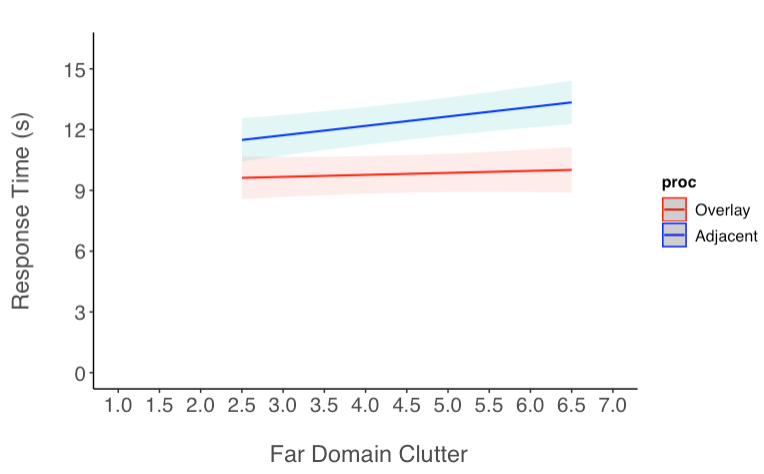Here is the linear mixed model that I am working with:
p3 <- lmer(respTime ~ proc*farFC+(1 | Subject), dtINT)
Proc refers to a factor with 2 levels (adjacent and overlay) farFC refers to a continous variable with 9 levels
The main output is below.
The slope of overlay is = 0.958.
When I change the reference level from adjacent to overlay, the slope of adjacent is -0.958.
Here is the code for how I am changing the reference level:
dtINT <- within(dtINT, proc <- relevel(proc, ref = 2))
#1 = ref level is overlay, 2 = ref level is adjacent
Why are the slopes the same but in opposite directions? Below is a graph, and we can see that the slopes are not the same (lines are not perfectly parallel).
How do I compute the slopes of each of these lines from the model? Said differently, how do I compute the slopes for each level of my IV? How do I tell if each of those slopes are significant?


